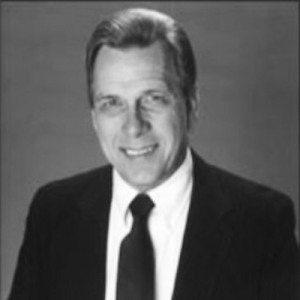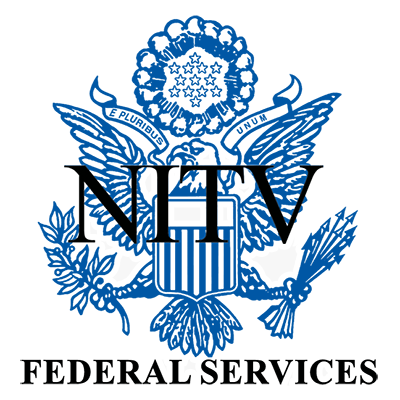
When you truly love what you do, you want to share your knowledge with others. This is what William (Bill) Endler did when he started working as a Senior Instructor teaching about a technology he is passionate about—the Computer Voice Stress Analyzer (CVSA®). After twenty years as a CVSA Examiner, Bill is an expert in validating the truth with this innovative technology and using proven interview methods to get suspects and witnesses to provide information.
Prior to becoming a leader in the Voice Stress Analysis community, Bill spent seventeen years as a veteran polygraph examiner. He switched over to the more reliable CVSA, and now the former two-time Chief of Police trains law enforcement and other investigators in the technical applications and interview methodologies used in the CVSA examination. Bill believes the foundation of a good truth verification interview is all in the questions, and we are pleased he took the time to answer some of ours.
Teaching the Technology
Bill teaches his class how CVSA works by analyzing frequencies of the voice. He explains, “When the FM frequency dissipates or disappears, it basically changes the frequency of your voice.” The FM tremor is inaudible to the human ear, but it is picked up by the microphone and analyzed through the software.
He simplifies this concept even more for us non-tech types: “The sympathetic nervous system kicks in and causes the fight-or-flight mechanism, which causes all these physiological changes in our body to occur, and it does it automatically.” Bill describes how when we are stressed, the muscles in our voice box tighten up, and that is what changes the frequency of our voice.
“The CVSA software detects these patterns, which look completely different when a person is under stress than they do when they are relaxed.” These changes—which result from questions about certain situations—are captured by the CVSA and charted in a readout that indicates whether someone is being deceptive based on the level of stress in their voice.
Detecting Deception Based on Stress
Some people believe that truth verification systems detect actual lies, but Bill says there is really no such thing as a “lie detector.” He points out that although both the polygraph and CVSA detect stress, “It is up to the examiner to find out where that stress is coming from. It doesn’t become deception until later.”
Everyone, whether innocent or guilty, experiences some stress during a police interview or truth verification exam. This is known as situational stress, and it is up to the CVSA Examiner to minimize it as much as possible. “We talk to them, we try our best to calm them down,” he says. This is done by offering them simple courtesies such as a glass of water or a bathroom break before the interview begins. Eliminating situational stress helps CVSA Examiners focus on the stress elicited by questions regarding the actual investigation.
A veteran polygraph examiner, Bill remarks that one reason he transitioned to CVSA is that “in polygraph, they teach you to create the stress in the individual by what you do and what you say.” CVSA Examiners use the opposite approach, doing everything they can to relax the subject. As a result, “You can feel very comfortable saying that stress must be coming from deception because I have done everything I could to reduce that situational stress.”
The Importance of Questions
When conducting a CVSA Examination, the subject is made aware of all the questions, and the examiner will actually go over the questions and answers so the subject will be acclimated to the process. Bill explains, “It is practice for the examiner and practice for the subject, so it gets them comfortable with the questions, and it helps them reduce that situational stress.”
During the examination, the CVSA Examiners use control questions, which ask individuals to lie about something unrelated to the investigation. Bill says these questions are there for the truthful individuals. “It’s not a significant lie, but it is a known lie…if that truthful individual has any of that situational stress left, that is where they can get rid of it.” Every case is different, and a well-trained examiner understands how to customize the questions for the individual and the circumstances.
“Question formulation is by far the most important aspect of the examination itself because basically if you aren’t asking the right questions, you aren’t going to get the results.” As such, Bill says they spend a lot of time in class on question formulation and using the right format for different types of investigations.
The Future of Truth Verification
The main reason Bill switched to the CVSA is because of the vulnerability of the polygraph to countermeasures. This device monitors breathing, heart rate, and galvanic skin response (GSR), and as such, there are a lot of methods individuals can use to manipulate the results which won’t be visible to the examiner. He says, “They are difficult to see because any muscle movement will affect the polygraph chart.” Such countermeasures include controlling their breathing, squeezing their sphincter, and moving their toes. If they do these things at the right time, this can lead to inconclusive or erroneous results.
With the CVSA, there are no countermeasures to manipulate the chart. “Basically, all they can do is raise and lower their voice, refuse to answer the control question properly, or just refuse to answer, period.” In other words, there is nothing a subject can do that won’t be apparent to the examiner.
Bill finds the CVSA to be “a thousand times easier than the polygraph,” with charts that are displayed in a clear manner and a process that is much more conducive to building rapport in the interview room. He feels more confident utilizing this technology, and graduates from Bill and other instructors’ classes have spread the message of the CVSA’s reliability to over 2,000 police agencies across the country. This is the new era of innovation in truth verification, and Bill and other CVSA Examiners are at the forefront of this movement.
Please reach out to us at NITV Federal Services to learn more about our CVSA systems and training programs.
